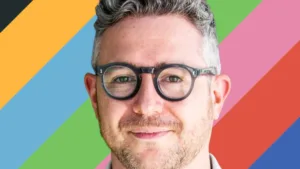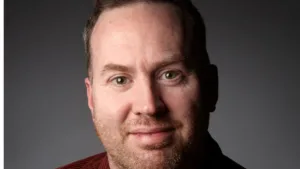We’re asking some of our industry’s leading figures to nominate their digital hero and to explain what’s so special about them.
One of our industry’s truly unique and inspirational figures, Nicole Yershon is former head of Ogilvy Labs. Now a best-selling author and founder of The NY Collective, she works with companies around the world helping them innovate better.
Who is your digital hero?
Let me preface everything by saying that digital and the underlying technologies are merely tools for mankind. Like the wheel and knives and boats. As a result, my hero is someone who has framed the world through this truth.
Charles Handy is both philosopher, management supreme, best-selling author and mentor – he is my digital hero.
What have they done to win hero status in your eyes?
Digital is one of those topics that invades everything. Contrary to some people’s view, it doesn’t exist on its own. Digitalisation is what’s getting applied to all aspects of our lives and everything we do. It takes the objectivity of experience to understand the profound reality behind that.
He’s my hero for many reasons. Partly because of the broad and deep wisdom that he deploys with grace and humility. But mostly because of his ability to cut through the noise and spot the bullshit. He is deeply thoughtful, measured in his response and has an amazingpassion for life and continuous learning.
I’ve come to admire anyone who stays curious. He has that increasingly rare skill to listen rather than brag and impatiently wait for that moment to take over the conversation. He listens intently to people and the context within which they exist.
I have so much to learn from him. I think his values make the difference in this world, especially as the world becomes so preoccupied with automation and digital.
He has his feet firmly planted on the ground. He is disarmingly humble but has an eye for the traps like an eagle hunting prey. His knowledge of business, people and change is as critical as it is deep.
He creates the calm amid the storm of disruption and change. His logic cuts through to make the clear path forward.
How has their heroism helped drive digital?
As I’ve said above we need to be careful with the idea of digital. The focus has to be on the concept and pitfalls of change.
Digital technology affects all companies. It’s disrupting them. My entire life has been helping clients turn the new reality into an advantage – that’s where Charles’s principles really helped me.
I met Charles at a small dinner discussing Immanuel Kant’s ideas for the ideal society. Kant referred to it as a ‘Kingdom of Ends’. Kant describes a profound truth – if we were reasonable, we would treat others as ends; persons with their own goals like ourselves; rather than simply a means to an end. Imagine how our workplaces would change if those in them were treated as ends rather than as means?
The digital revolution has to be positioned as a toolset where humans leverage and exploit it to improve their worlds and businesses – not digital supremacy as an end. It would mean that leaders would recognise others as humans – people of value and creativity rather than the tools in their workplaces. The term Human Resources, for example, would deeply concern Kant!
What’s the biggest challenges in digital we need another hero to solve?
Education!
The idea that digital is a silver bullet to bypass all our ills is badly out of line. I think far too many leaders see the removal of people in favour of machines as a compelling solution and miss the point about value, humanity and the advantage of that within business and society.
A great question I learned through Charles is “To what extent do today’s populism and anti-elitism stem from organisations treating those in and around them as means rather than ends?”
This is a significant issue for me. Educating leaders that people need to be cherished, encouraged and valued doesn’t seem like rocket science and yet that’s often the challenge.
It shouldn’t be such an alien concept that people need to be guided, motivated, belovedand trusted if they are to create value for the business and when required transition to new and improved ways of working.
We know that there’s a major investment in the past. This guarantees a romantic attachment to what ‘used to be’. Legacy systems get in the way. Natural human resistance to change gets in the way. Effects of problems are always much easier to see than the cause.
Charles has taught me more than anyone about the power of enabling people to transition to new ways of working. We know we cannot stop the onslaught of technology, but we can educate and that’s the biggest challenge for digital.
Interestingly, digital could even help us solve it.
What is your most heroic personal achievement so far in digital?
In the year 2000, I took a large organisation that was predominantly paper/analogue based on a major journey of digital change.
This is where I learned it wasn’t about digital. For change to be adopted, I discovered it was about behaviour and human beings and their attention, appetite and confidence.
The program of transformation and change to embrace technology was a major learning. It gave rise to so much value both for the business and my own future.
The program required an absolute and steep technical understanding. It taught me about process and system change but more importantly it switched me into the crucial need for education and training as well as the identification and onboarding of new and diversetalent.
I’ve covered a lot of the learning of these years and explained the talent programme we set up in my book Rough Diamond, now on Amazon Best Seller!









